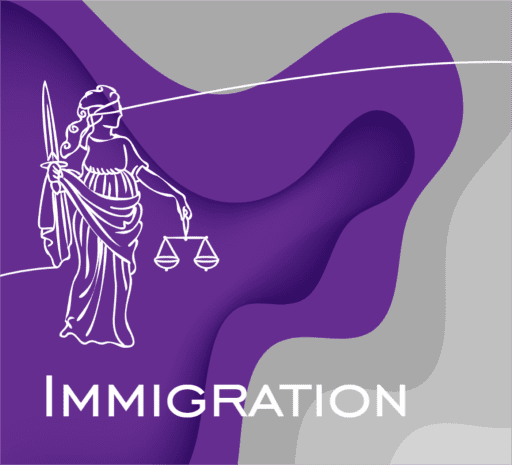If you originate from outside the European Economic Area and Switzerland and you have an EEA family member who resides legally in the United Kingdom, you may qualify for an EEA Residence Card in accordance with the Immigration (European Economic Area) Regulations 2006.
A Residence Card is a formal document confirming your right to reside legally in the respective country under EEA law. The document will typically be issued as an additional form of ID to be presented where required alongside your passport, usually as a Biometric Residence Permit (BRP). Most Residence Cards are valid for five years of legal residency in the United Kingdom, dependent on your EEA family member remaining in the UK for the duration.
In accordance with European Regulations 2006, the Home Office is legally obliged to consider every application and return a decision no later than six months from the date of receipt.
The EEA national residing in the United Kingdom must be exercising their treaty rights in order to be considered a qualified individual. Immigration legislation specifies that they must be:
- working; or
- self-sufficient; or
- self-employed with sufficient evidence of income and National Insurance/tax contributions; or
- a jobseeker for no more than six months; or
- a student with comprehensive health insurance.
Each of the above categories is explained in more detail in the official text of the European Regulations 2006, as summarised below:
- Worker. If the EEA national is employed, they have the right to enjoy free movement in the United Kingdom as a qualified individual. They may be employed on a part-time or full-time basis, by way of a formal contract with an employer. They must be able to provide evidence of sufficient income to support their spouse and their family (where applicable) without the need to claim benefits.
If the individual is rendered unemployed temporarily, they may continue to be classified as a worker under regulation 6(2) if:
- Their temporary unemployment is the result of an accident or illness;
- They’ve been terminated involuntarily and entered into vocational training;
- They have stopped working voluntarily and entered into a training of relevance to their previous position.
- Self-Sufficient Person. Immigration law specifies that an EEA national qualifies as Self-sufficient if:
- They can provide sufficient evidence of a high enough income or savings to support their spouse and any other family members where applicable, without having to claim benefits, and
- They have comprehensive health insurance to cover their own requirements and those of their family members where applicable.
- They are retired and receive sufficient income by way of pension payments or savings to cover their living costs and those of their family members.
- They work for a registered charitable organisation and can provide evidence of sufficient income or savings to cover their living costs.
- Self-Employed Person. In order to be recognised as a self-employed individual in accordance with EEA immigration law, the worker must be registered for National Insurance and income tax contributions with HMRC. They must also be able to provide evidence of both their employment status and their income, typically through the provision of tax returns, business accounts, invoices, bank statements, formal letters from accountants and so on.
Regulation 6(3) of the European Regulations 2006 states that in the event a self-employed EEA national is rendered unable to work on a temporary basis due to an accident or injury, they are still formally considered a self-employed person.
- Jobseekers. Regulation 6(4) of the Immigration (EEA) Regulations 2006 stipulates that to qualify for jobseeker status, the EEA national must provide evidence that they are proactively and continuously seeking employment and have a reasonable chance of successfully gaining employment. Additional criteria that may allow an individual to qualify for official jobseeker status include the following:
- The EEA national was employed for a minimum of 12 consecutive months before becoming unemployed and registering as a jobseeker;
- The individual has not yet spent more than six months unemployed as a jobseeker; or
- They can provide sufficient evidence to verify their efforts to secure employment and have a strong chance of getting a job in the UK.
- Student. Qualifying for student status means providing evidence of having registered with a recognised training provider/educational institution in the UK, the financial means to support all applicable living expenses for the duration of the programme and comprehensive health insurance.
Appealing a Residence Card Application Rejection
Residence card applications may be rejected due to the incomplete provision of information, insufficient supportive documentation or simple human errors on one or both sides. Hence, it’s important that you exercise your right to repeal against a rejection of your application, if unsuccessful.
The refusal letter you receive will specify the reasons for your application’s rejection, after which you will have 10 working days to lodge your appeal (five days if you’re being held in detention). Your case will then be passed to an immigration judge at the Immigration and Asylum chamber (IAC) First Tier Tribunal, where it will be reconsidered in conjunction with your arguments against its rejection.
EEA Residence Card Lawyers in Luton
The quality and completeness of your application will have a significant impact on your likelihood of qualifying for a Residence Card. Rather than taking chances on such an important issue, we strongly suggest seeking qualified legal support from the earliest possible stage.
Whether planning ahead or in the midst of a complex individual immigration issue, Aristone Solicitors can provide the expert assistance you need to streamline your application. Call today to book your obligation-free consultation with one of our experts.

